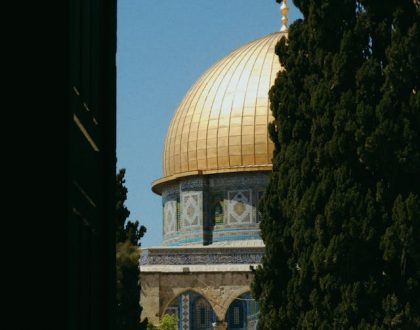Don’t make the dunya your priority – Tarawih reflections 4

Allah challenges Bani Israil
In ayah 94 of Surat al-Baqarah, Allah challenges Bani Israil, after they repeatedly betrayed their Messenger, Musa (peace be upon him) and reneged on their covenants with Him. Feeling a sense of superiority, they claim that Jannah is exclusively for them, and Allah asks them,
‘If the Home of the Hereafter with Allah is exclusively for you out of all humanity, then wish for death if you are truthful.’ [2:94]
If they truly believe that they are certain to go to Jannah, why are they suffering in the dunya? They should wish for death and go and enjoy it. But in the next ayah He answers why they will never do this:
‘But they will never wish for that because of what their hands have done. And Allah has ˹perfect˺ knowledge of the wrongdoers.’ [2:95]
Allah knows who are the oppressors and the wrongdoers.
Humans like to live
This fact is not exclusive to Bani Israil. It is not just them who want to ‘live for a thousand years’ [2:96] It is human nature. Indeed the first trick Shaytan played on Adam (peace be upon him) was to tell him that the forbidden tree would make him immortal.
فَوَسۡوَسَ إِلَیۡهِ ٱلشَّیۡطَـٰنُ قَالَ یَـٰۤـَٔادَمُ هَلۡ أَدُلُّكَ عَلَىٰ شَجَرَةِ ٱلۡخُلۡدِ وَمُلۡكࣲ لَّا یَبۡلَىٰ﴿ ١٢٠
Then the Satan instigated him. He said, “’Ādam, shall I guide you to the tree of eternity and to an empire that does not decay?” [Ṭā-Hā, Ayah 120]
Humans like to live. This is what Allah created in us in order for us to stay on this Earth and produce new generations through our offspring. We have to live and love life.
We can’t escape our own actions
Even if you were to live one thousand years, it would not distance you from what you have done. Eventually you will die, and you will face Allah and the consequences of your own deeds. However long you live, it will not prevent Him from giving you the punishment.
Netanyahu is prolonging this genocide in Gaza. Those who are killed will go to Jannah inshallah. But he will face the consequences in dunya and akhirah, no matter how long he lives.
Don’t make dunya your priority
We should not be too attached to life, but also not dismissive of it either. Allah says Muslims should be a ‘moderate Ummah’ [2:144] – i.e. people who are in the middle, between two extremes.
In the hadith, a man came to the Prophet Muhammad ﷺ and asked him, ‘Show me a deed which, if I do it, Allah will love me and people will love me.’ His response was, ‘Be indifferent to worldly life, and Allah will love you; and be indifferent to what people have, and people will love you.’ [Ibn Majah]
He was telling us not to hold the dunya in our hearts, and not to compete with other people. This doesn’t mean you can’t for instance conduct business in a professional manner, even if you have competition, but don’t make this your purpose.
Make the akhirah your purpose, and use dunya to achieve your purpose.
May Allah enable us to make the akhirah our priority. Ameen
Based on the reflections of Shaykh Haytham Tamim
Transcribed by Hana Khan

- The forces of Allah and the fate of the falsifiers
- Climbing the stairs: How to continue your spiritual journey post-Ramadan
- How Allah strengthens the hearts of believers
- Why should you follow up one good action with another one?
- Don’t be a Ramadani person – Be a Rabbani person.
Recommended Posts

The forces of Allah and the fate of the falsifiers
April 26, 2024

How Allah strengthens the hearts of believers
April 19, 2024

